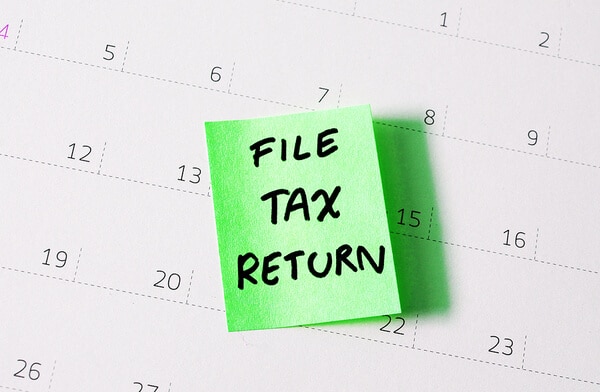No one likes having to pay in at tax time, which is why tax planning all year-round is essential. Even when you cannot avoid paying in, you still have options when you owe additional taxes to the IRS. You may be able to pay the debt over time, work out an arrangement with the IRS to pay less than what you owe, or work out an extension to pay.
Even if you owe taxes now, you can start making changes today to reduce your taxes in upcoming years. Protect Wealth Academy’s extensive library of tax reduction strategies can help.

Importance of Filing Even When You Owe
When you owe money to the IRS, you can make matters worse by failing to file your return at all. Even when you owe, you should still file your return. Penalties for not filing are higher than those for not paying. For example, if you submit your return more than two months after your deadline, your penalty can be up to 100% of the unpaid tax plus applicable interest that begins accruing almost immediately.
In some situations, the IRS will waive the penalties if this is the first time that you have incurred them. However, you should not count on this leniency and assume that any penalties they charge you will become part of your tax debt.
It is generally in your best interest to pay whatever you can to the IRS on time, even if you cannot immediately pay the amount in full. This will help reduce your penalties and interest overall.
You have other options to arrange for payment if you owe taxes this year. It is much better to speak with the IRS about these options than to neglect the situation altogether. Ignoring the problem will definitely cost you more in the long run.
Seeking Extra Time to Pay
You may be able to obtain a short-term extension if you need time to gather funds to pay your tax debt. The short-term extension can be up to 120 days. The application process is simple and can be completed online. The short time frame has the benefit of decreasing the interest and penalties overall, but paying within just a few months may not be possible for some taxpayers.
For those that need more time to pay, entering an installment agreement with the IRS may be a good option. If your installment agreement is approved, you can have up to 72 months to pay up to $50,000 in taxes. In fact, applications for tax debts under $50,000, with the proposed payment plan of under 72 months are automatically approved. Businesses must owe less than $25,000 to qualify for the automatic payment plan. If your tax debt is outside of these limits, you can still apply, but approval may be harder to obtain.
Installment payment plans do require a small fee to set up. For example, a regular installment agreement will cost $225. However, if you use a direct debit option, the price lowers to $107. Online payment arrangements will vary in price as well, and they are usually less expensive.
To qualify for a payment plan you or your business must have your taxes on file. This requirement again stresses the importance of filing, even if you do not have the money right now to pay.

Settling Your Tax Debt for Less Than What You Owe
It is possible to work out your tax debt for a fraction of what you owe—and you do not need a specialist or debt consolidation service to enter this type of agreement. While having a professional like an attorney or financial planner may be helpful, it is often not required to settle your tax debts with the IRS.
A settlement with the IRS is generally referred to as an “Offer in Compromise.” You may be able to enter this type of agreement if you are financially unable to pay your tax debts in full or doing so would create a financial hardship. The IRS will consider your financial information as a whole when you apply for this type of settlement, including your ability to pay, expenses, income, and asset equity. Only certain individuals will qualify for this kind of agreement. Taxpayers can agree to either a lump-sum payment or periodic payments as part of their compromise.
Because of the specific qualifications that the IRS requires for this type of settlement, many higher-earning taxpayers that have significant assets, even if they are not easily liquidated, will not qualify for an offer in compromise.
Tax Reductions Strategies to Use Now for Next Year
To avoid paying in next year, you may need to make some simple changes to your finances today. If you are a W-2 wage earner, you may want to simply adjust your W-4 so that your employer takes out more taxes. This can be effective for those who have side businesses with significant income. For many taxpayers, however, you may need to make some more drastic moves to increase your credits or deductions.
The most effective tax reduction strategies often include the following.
- Create a side business so you can deduct everyday expenses
- Defer income to next year when possible
- Prepay your expenses that may result in tax saving deductions
- Make larger retirement contributions
- Consider selling assets to incur capital losses
- Make more charitable contributions
Protect Wealth Academy can help you learn a variety of tax-saving tips to reduce your tax obligation for 2017. Learn the ins and outs of some of the most effective wealth management strategies by using our extensive resource library. Sign up for free membership now.
